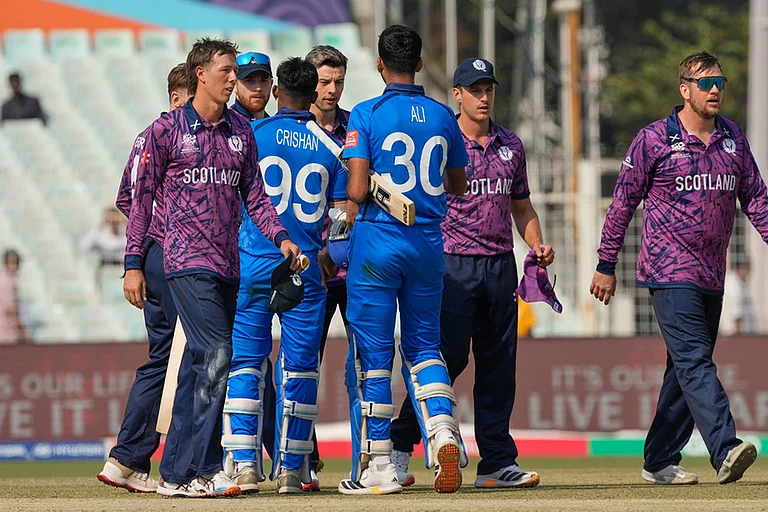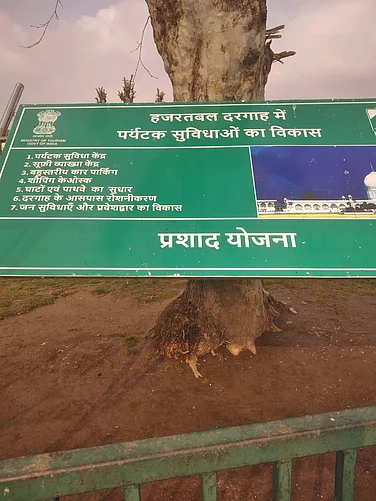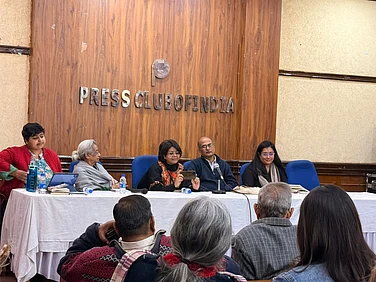Given the aggressive posturing of the BJP vis-a-vis Pakistan, the perception was that the December 13 attack on Parliament would evoke a furious response from the BJP government. The early indications were that New Delhi had no option but to act. Public statements by senior NDA ministers like home minister L.K. Advani all seemed to point to this. Many BJP MPs were even seeing war clouds on the horizon.
In fact the day after the strike, the government demanded that Pakistan take action against the Lashkar-e-Toiba and the Jaish-e-Mohammad. Foreign secretary Chokila Iyer summoned Pakistan high commissioner Jehangir Qazi and gave him an earful. But by the end of the fortnight, it appeared that the government’s initial emotional response had been tempered by pleas for caution from the international community and to some extent the Opposition.
But Vajpayee turned tack. "There can be no hasty decision in choosing between war and peace. We must be patient and take a comprehensive view of all options," a cool and collected prime minister told Parliament on December 19. Even Advani had tempered his ‘we will get them at whatever cost’ posturing.
The hawks in and outside government were brought up short when word got around that immediate strikes across the LoC would not yield dividends because the targets—the terrorist training camps in PoK—had moved away, perhaps towards the Afghanistan border. A diplomatic offensive would have to be the first option, as minister of state for external affairs Omar Abdullah spelt out in Parliament.
CPI(M) leader Somnath Chatterjee says US pressure moderated the government’s stand, rather than any political or strategic considerations. "There is talk of consultations, but no value is given to the views of the Opposition which had been advocating moderation from the beginning. If the government has realised that it cannot precipitate a confrontation, it must be on the advice of their friend, George Bush".
Congress leaders, however, believe that a belated realisation of strategic and diplomatic compulsions prompted the government to sound a note of caution. According to them, it became clear that there could be no question of an open conflict. Notes Congress MP Kapil Sibal: "The decisive battle the PM mentioned isn’t possible in this day and age. The potential dangers are horrendous."
For Vajpayee, a firm-but-cautious approach began to make political sense after the Opposition put the ball firmly in his court. While it would back the PM, the Opposition said, the ultimate decision would be that of the government alone. The Congress consciously adopted the role of a "constructive opposition".
This represented a changed stance from that of December 13. At the CWC meeting that day, Sonia Gandhi had decided to go for the government’s jugular. Usually, she listens to all shades of opinion and lets a consensus evolve, but on that day she was quite vocal and insisted the party put the government on the mat. Cheered on by CWC member Kamal Nath, she ignored advice from Congress veterans that the party adopt a moderate approach and stress solidarity with the government rather than reproach it for security lapses.
At the CPP meeting the next day, Sibal suggested that this was wrong but was reportedly snubbed. But later, with the BJP piping down on its war plank and Vajpayee looking for support from the Opposition, the tide turned. Even Sonia realised that it was necessary to present a united front and leave it to the government.
The change in gears yielded immediate dividends, with Sonia’s understated speech drawing kudos across the board. It also ensured that if the government blundered, the blame would be laid directly at the PM’s door and no charge of an uncooperative opposition could be made. As had happened during Kargil.


























